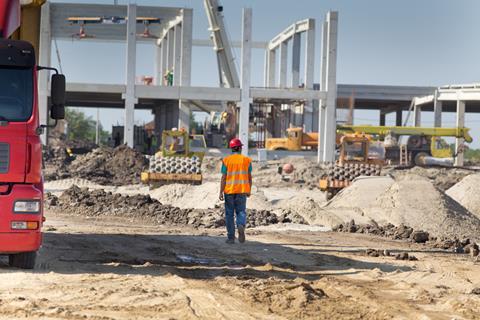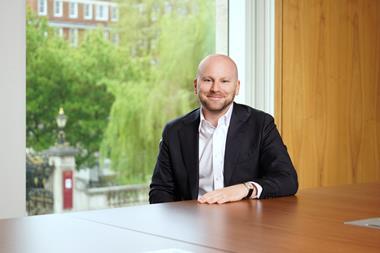“The only thing we have to fear is fear itself,” or so wrote Franklin D Roosevelt as the 1930s Depression reached its zenith in the US.

Currently, in our own coronavirus nightmare, the built environment is facing its greatest challenge in living memory: not just the potential for vast swathes of the workforce to be struck down by the pandemic, but also for so many firms to be destroyed by site close-downs.
Despite this, pockets of the construction sector are still working, but if not out of necessity then we have to consider if we are risking the lives of our workforce unnecessarily. I know from strong anecdotal evidence that there are operatives on sites who are not adhering to the 2m distancing rules.
The reason they are still working is obvious: they are scared that if work stops, the cold, clawing hand of insolvency could be around the corner. The chief executive of one well-known firm who has closed all his sites confided that it was costing him £10m per week in lost revenue on a business that delivered margins of around £31m last year.

Legally, contractors cannot seek redress. The moment they decide to suspend work on their sites, they will face claims for breach of contract. Seeking relief through force majeure and common law frustration would be an entirely academic exercise. Force majeure clauses are unlikely to be found in bespoke or amended standard contracts anyway.
We need to remove the fear of which FDR spoke in the 1930s. There is no quick fix here, but maybe the government could look at the temporary suspension of loss and expense claims from subcontractors and main contractors to employers.
Other areas include the parking of claims for liquidated damages exacted by employers from main contractors, the removal of penalties aimed at developers for failing to deliver tenant/landlord buildings on time and penalties stopped for tenants who miss lease breaks. Finally, postponed dividends to bondholders connected to landlords and postponed cash-calls from funders could be reviewed.
We can beat this but we must not just fight the virus; we must fight our own fear and shelve the adversarial nature of our sector, which often can let “perfect be the enemy of the good”, as the chancellor so eloquently put it.
Richard Steer is chairman of Gleeds Worldwide






























No comments yet